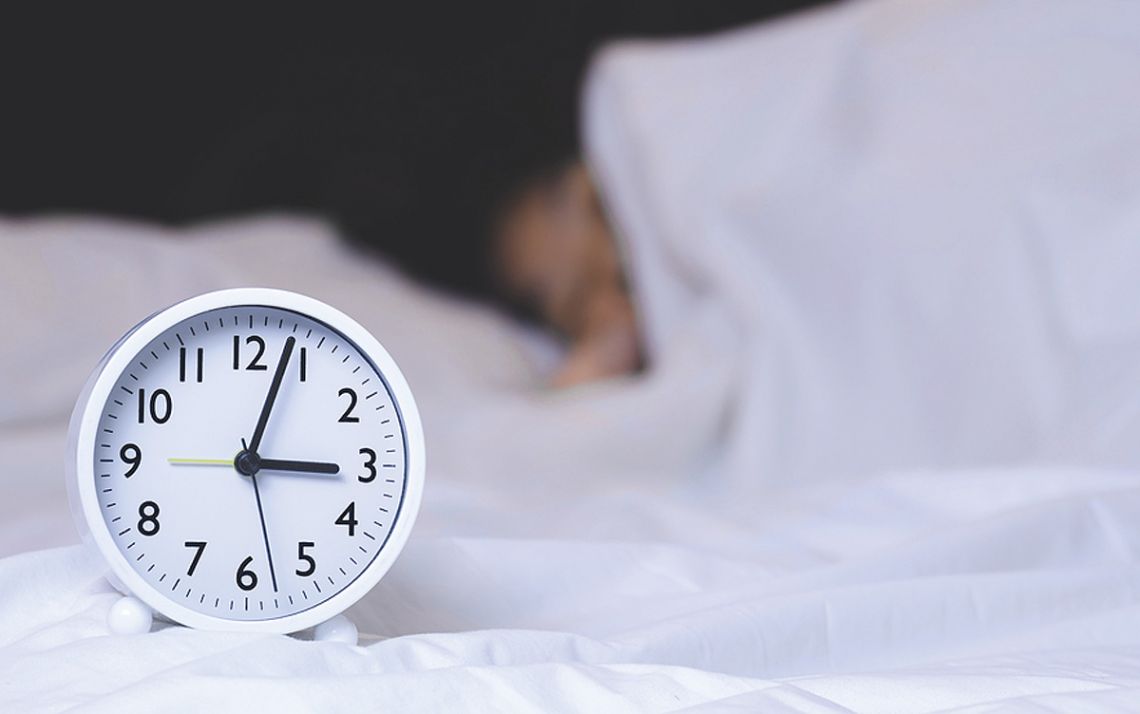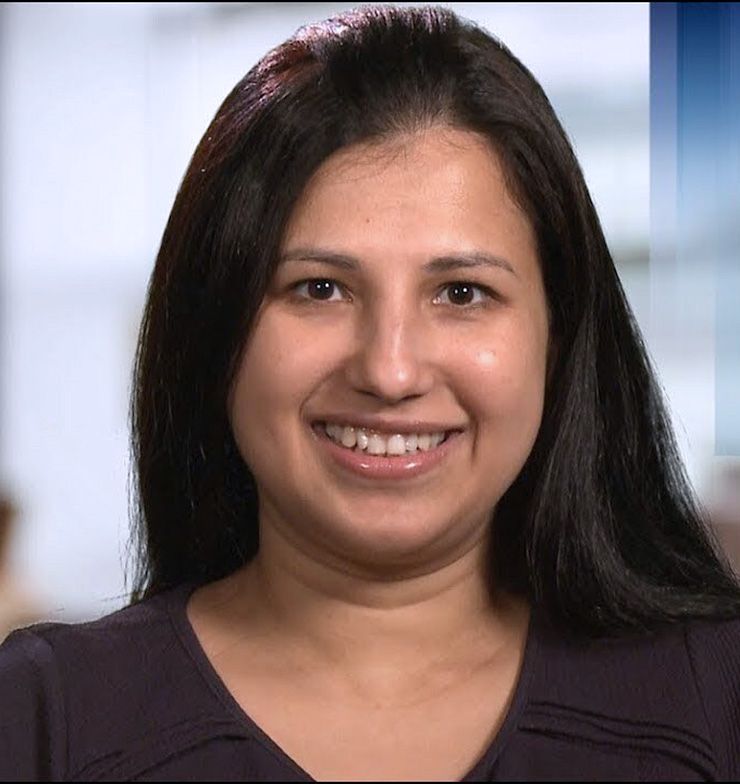How to Regain Control of Your Sleep
Here’s what you need to know to get better sleep

Prior to the COVID-19 pandemic, Dr. Hunter Spotts, assistant professor of Family Medicine & Community Health and medical director of Student Health at Duke, had a stable sleep routine.
 After unwinding with a little TV once his day was done, Spotts would head off to bed after about 9 p.m., read a book, and fall asleep soon after. This left him rested enough for a morning run around 5 a.m. before heading to work.
After unwinding with a little TV once his day was done, Spotts would head off to bed after about 9 p.m., read a book, and fall asleep soon after. This left him rested enough for a morning run around 5 a.m. before heading to work.
But during the pandemic, Spotts’ work landscape changed as he played a key role in organizing and executing contact tracing, isolation, and quarantine programs for students.
“For a couple of years, it became a seven-day-a-week job,” Spotts said. “There was a lot of stress, and there was also a lot going on early in the morning and late at night.”
Like many others, the COVID-19 pandemic affected Spotts’ ability to get enough sleep. A 2022 study of data from 49 countries concluded that four out of every 10 individuals reported a sleep problem during the pandemic.
“We saw a lot more people with sleep issues because of anxiety around the pandemic,” said Dr. Sushrusha Arjyal, an assistant professor in Department of Psychiatry and Behavioral Sciences and the Department of Neurology, who sees patients with sleep disorders. “Anxiety is the enemy of sleep.”
The Centers for Disease Control and Prevention (CDC) recommends that adults get at least seven hours of sleep each night. However, it concedes that more than one-third of adults say that they fall short of that goal, which can lead to a higher risk of developing high blood pressure, Type-2 diabetes and obesity.
Meanwhile, getting the recommended amount of sleep can also improve mental function and well-being.
If you’re among the millions of American facing sleep challenges Dr. Arjyal recommends keeping three things in mind.
Consider Your Sleep Hygiene
 For the past few years, Angela Rice-Warren, an education and training coordinator for Duke Cancer Institute, has stuck to a bedtime routine that’s helped her get more than seven hours of sleep per night.
For the past few years, Angela Rice-Warren, an education and training coordinator for Duke Cancer Institute, has stuck to a bedtime routine that’s helped her get more than seven hours of sleep per night.
Inspired by the “Three Good Things” well-being program offered by Duke Healthcare Safety and Quality, Rice-Warren has set a reminder on her phone for 9 p.m. each night to stop and write down three positive developments from that day. After that, she starts her nighttime routine to prepare for bed.
“It’s been such a good habit for me,” Rice-Warren said. “It gives me a trigger that tells me it’s time to start calming down and get ready for bed.”
Bedtime routines such as this are part of what sleep experts call “sleep hygiene,” or the steps we can take to create the right environment and mindset to fall asleep. For many who deal with sleep issues, simply improving your sleep hygiene by building a bedtime routine and putting more thought toward conditions in your bedroom, can help considerably.
Dr. Sushrusha Arjyal said helpful bits of sleep hygiene include sticking to a regular bedtime and wake-up time, avoiding naps during the day, reducing intake of caffeine and alcohol in the evening and keeping a bedroom cool and dark. She said it’s important to avoid using electronics – that includes watching TV or reading on your phone – while in bed.
“The key is not to spend time in your bed when you’re not sleeping,” Arjyal said. “The idea is to create an environment that’s conducive to sleep.”
Don’t Stress Out
 No matter the sleep environment, there will inevitably be times when we lay awake in bed, unable to fall asleep. For these moments, Dr. Sushrusha Arjyal said it’s important to relax and realize that these situations are likely not as bad as they seem.
No matter the sleep environment, there will inevitably be times when we lay awake in bed, unable to fall asleep. For these moments, Dr. Sushrusha Arjyal said it’s important to relax and realize that these situations are likely not as bad as they seem.
Dr. Arjyal said its common to get in bed and be unable to fall asleep right away. It usually takes 20-30 minutes to fall asleep. Likewise, she said, people usually wake up wake up once in the middle of the night and are sometimes unable to fall back asleep quickly. While these may seem like signs of a sleep problem, Arjyal said that, in most cases, they’re often fairly harmless and don’t last as long as we think. Usually, within about half an hour, she said, people tend get back to sleep.
“If it happens” Arjyal said. “You need to get up and walk around, or go somewhere and read a book, that’s OK. You’ll probably fall back asleep. Generally, people get very anxious about how long it takes to fall asleep. That’s something we need to avoid in order to sleep well, which is kind of a paradox.”
When to Get Help
For several years, Rice-Warren served as a patient experience educator for the Duke Private Diagnostic Clinic, a role that often required her to visit clinics far from her Roxboro home for early-morning trainings. During this period, Rice-Warren said she struggled to consistently get enough sleep.
Around the time she transitioned to her role with the Duke Cancer Institute, and when the COVID-19 pandemic made her job remote, she approached her primary care doctor for advice on how to get better sleep. Her doctor recommended spending more time outside to help her circadian rhythm, adhering to her bedtime routine and occasionally taking melatonin – a supplement that can help with sleep issues – when the need arose.
“When you haven’t had enough sleep, you make more mistakes, you get snappy with people and you just feel bad,“ said Rice-Warren, who now gets the recommended amount of sleep. “Sleep is so crucial, it’s how your body heals.”
When it comes to determining if you’ve got a sleep issue which requires professional help, Dr. Sushrusha Arjyal said that it has as much to do with what happens during the day as it does with what happens at night. If, you’re consistently falling short of the recommended amount of sleep, and it’s leaving you feeling fatigued or unable to focus as you go through the day, it may be wise to talk with a doctor or sleep specialist, who can connect you behavioral or medical resources which can find the cause of, and potential solutions for, any sleep issues.
“If you feel like you have good sleep hygiene, and you still struggle to sleep to the extent that your daytime functionality is impaired, then it may be time to seek the help of a physician or a specialist.” Arjyal said.
Send story ideas, shout-outs and photographs through our story idea form or write working@duke.edu.